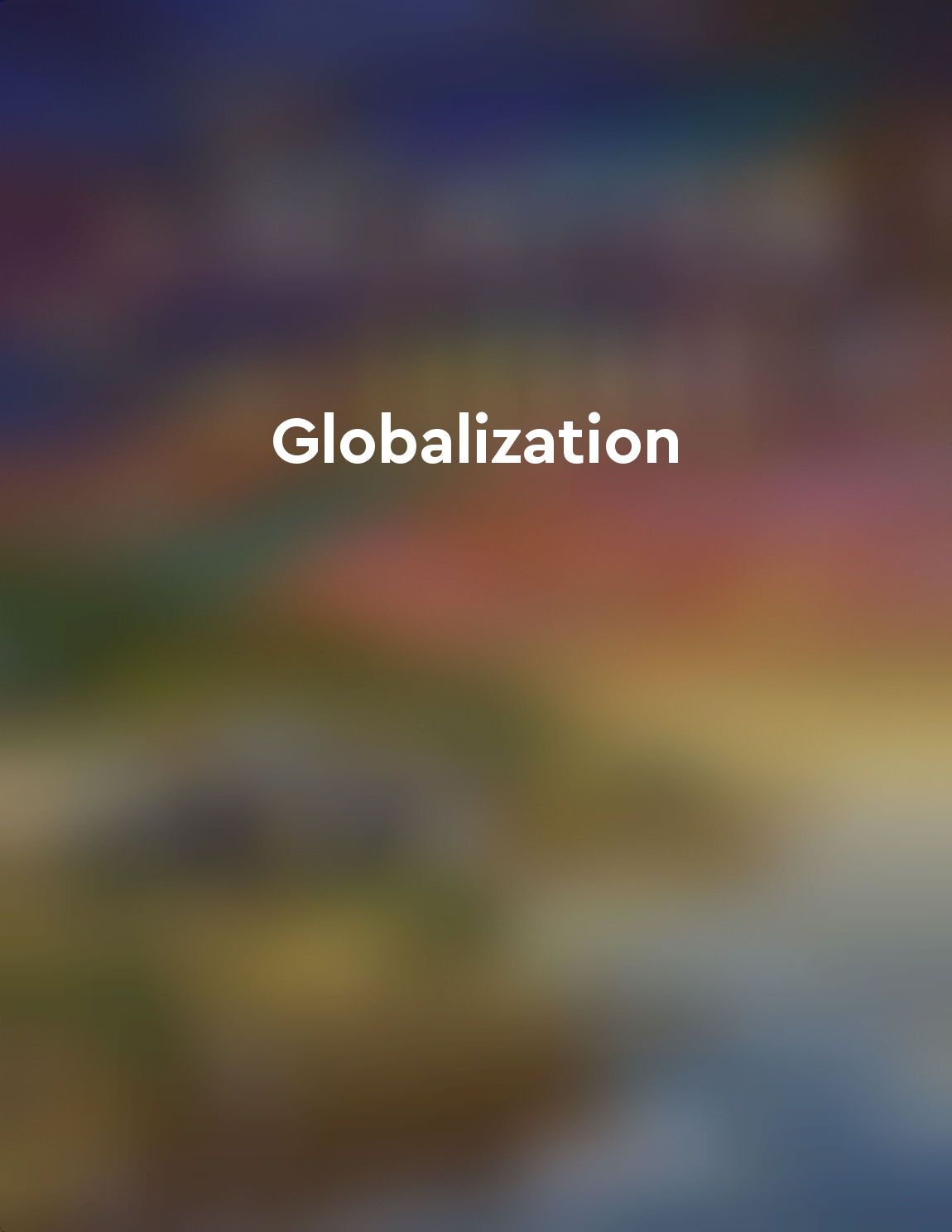Power shifts from "summary" of Globalization by
Power shifts are a fundamental aspect of the globalization process. As countries become more integrated into the global economy, changes in economic power and influence naturally occur. These shifts can be seen on both a regional and global scale, as certain countries rise in prominence while others may decline. One of the key factors driving power shifts in today's globalized world is the rapid advancement of technology. Countries that are able to harness new technologies and adapt to the digital age are often better positioned to compete and thrive in the global economy. This can lead to shifts in economic power, as technology becomes a key driver of growth and innovation. Another important driver of power shifts is changing demographics. As populations grow and shift, so do economic and political dynamics. Countries with large and youthful populations may experience rapid economic growth and development, while those with aging populations may face challenges in sustaining economic growth and competitiveness. Globalization has also led to the emergence of new economic powers, such as the BRICS countries (Brazil, Russia, India, China, and South Africa). These countries have seen significant economic growth in recent years and have become increasingly influential on the global stage. As a result, traditional power dynamics are being reshaped, with new players exerting their influence in international affairs. In addition to economic factors, geopolitical shifts also play a role in power dynamics. Changes in alliances, conflicts, and international relations can all impact the distribution of power in the global arena. As countries jockey for position and influence, power shifts can occur as new alliances are formed and old ones are weakened.- Power shifts are a complex and dynamic process that is constantly evolving in today's globalized world. Understanding the drivers and implications of these shifts is crucial for policymakers, businesses, and individuals seeking to navigate an increasingly interconnected and competitive global landscape.


